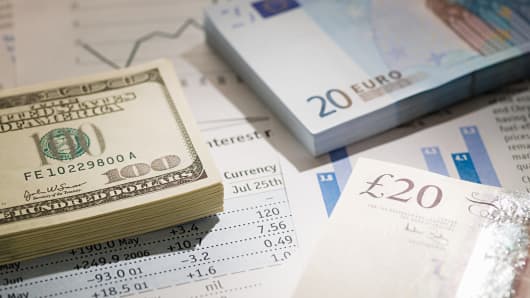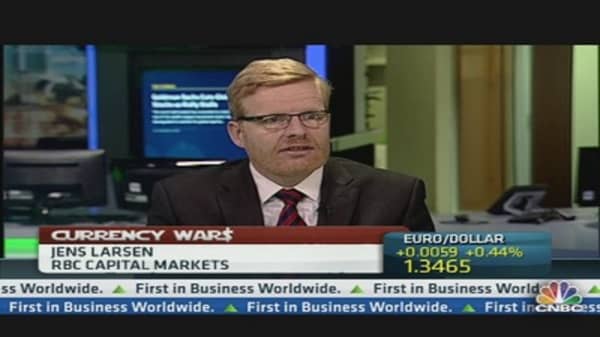"The G-7 had intended to send a warning to Japan about its aggressive devaluation of the yen but instead appeared to show support. It later said its statement was misinterpreted and raised concerns about yen weakness," he added.
Talk about a "currency war" has intensified this year, triggered by Japan's new government pushing for an aggressive monetary policy. The yen has fallen more than 8 percent against the dollar since the start of the year and about 10 percent against the euro.
(Read More: Kudlow: There Is No World Currency War)
"What we saw overnight is that we got something of a mixed message from what was happening with G-7 leaders in terms of their view on the currency war issue," Paul Bloxham, chief economist for Australia and New Zealand at HSBC said on CNBC Asia's "Squawk Box."
The problem, say analysts, is that agreement is hard to come to because the G-7 is made up of different economies with different views on recent currency developments.
The wild swings in currency markets overnight follow a volatile Monday when the yen spiked lower after comments by U.S. Treasury official Lael Brainard, who said that while competitive currency devaluations should be avoided, Japan's bid to revive its weak economy and end deflation were supported by Washington.
(Read More: Nikkei Jumps After US 'Green Light' on Yen Selling)
European Central Bank chief Mario Draghi weighed in on Tuesday, saying that exchange rates are important for growth and price stability.
The dollar was trading at about 93.15 yen on Wednesday, off a 33-month high hit above 94 yen on Monday.
"It's a usual statement with no real agreement," Societe Generale's Senior Currency Strategist Sebastien Galy said with regards to the G-7 statement.
"You've got the Europeans on one side, the Americans in the middle and the Japanese at the other extreme. ... All in all it (the statement) tells you that nothing really has happened, dollar/yen and euro/yen are still in an upward trend until we reach a much more large-scale correction," Galy said.
(Read More: Has China Quietly Joined the Currency War)
G-20 finance ministers and central bankers meet in Moscow this Friday and Saturday and analysts said there may be some comments, but nothing too significant.
"The G-20 will be reluctant to talk too much about which way currencies should move," said HSBC's Bloxham.





